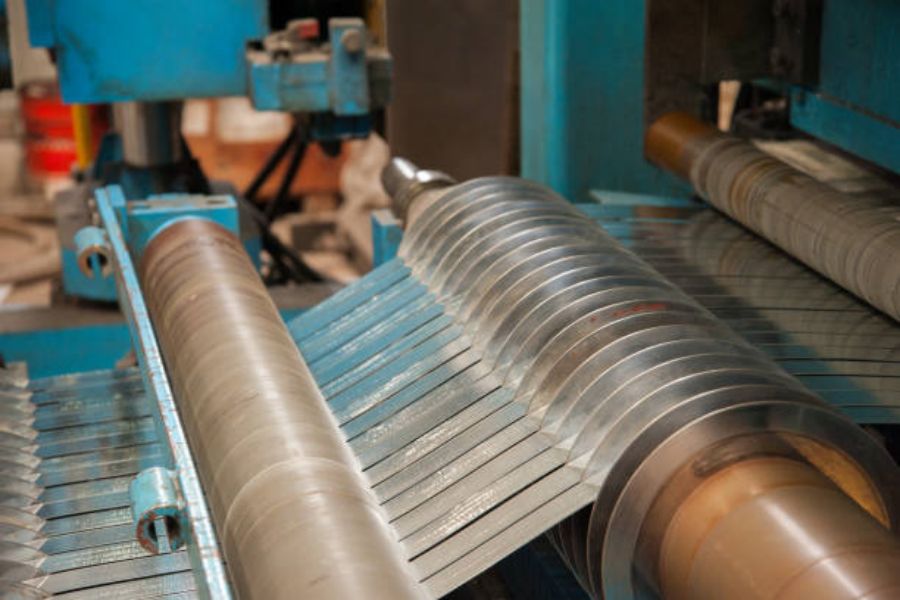Introduction
Roll forming machines are essential equipment in the metalworking industry. They are used to shape metal sheets into various profiles with consistent dimensions. The price of a roll forming machine is a crucial factor to consider when investing in one. In this comprehensive guide, we will explore different aspects of roll forming machine prices, helping you make an informed decision for your business.
1. Understanding Roll Forming Machines
Before delving into the pricing details, it's important to understand what roll forming machines are and how they work. Roll forming is a continuous bending operation in which a long strip of metal passes through sets of rolls, gradually forming it into a desired shape. These machines are capable of producing complex profiles with high precision and repeatability.
2. Factors Affecting Roll Forming Machine Prices
Several factors influence the price of a roll forming machine. The primary factors include:
- Machine Complexity: Machines with more advanced features and capabilities tend to be priced higher.
- Material and Profile: The type of material and the complexity of the profile being formed can impact the machine price.
- Production Speed and Capacity: Higher production speeds and larger capacity machines generally come at a higher cost.
- Customization Options: Machines that offer extensive customization options may have a higher price tag.
- Brand and Reputation: Established brands and manufacturers often command higher prices due to their reputation and quality.
3. Entry-Level Roll Forming Machines
If you are just starting in the roll forming industry or have limited production requirements, an entry-level roll forming machine might be suitable for you. These machines are generally more affordable and offer basic functionalities. While they may lack advanced features, they can still deliver satisfactory results for simpler profiles.
4. Mid-Range Roll Forming Machines
Mid-range roll forming machines strike a balance between price and performance. They offer a wider range of features and capabilities compared to entry-level machines. These machines are suitable for businesses with moderate production needs and require more versatility in profile designs.
5. High-End Roll Forming Machines
High-end roll forming machines are designed to meet the demands of high-volume production and complex profiles. They come with advanced features, such as servo-driven systems, computer numerical control (CNC) capabilities, and automatic changeover. These machines are typically priced higher but offer exceptional precision, speed, and efficiency.
6. Used Roll Forming Machines
Another option to consider is purchasing a used roll forming machine. Used machines can be significantly cheaper than new ones, providing a cost-effective solution for those on a tight budget. However, it is important to thoroughly inspect the machine's condition and ensure that it meets your specific requirements before making a purchase.
7. Additional Costs to Consider
When budgeting for a roll forming machine, it's essential to consider additional costs beyond the initial purchase price. These may include:
- Shipping and Installation: Depending on the location and size of the machine, shipping and installation costs can vary.
- Training and Support: If your team is not familiar with roll forming machines, training and support services may be necessary, which could incur additional costs.
- Maintenance and Repairs: Regular maintenance and occasional repairs are part of owning a roll forming machine, so budgeting for these expenses is crucial.
8. Evaluating Return on Investment (ROI)
When considering the price of a roll forming machine, it's important to evaluate the potential return on investment. Calculate how long it will take for the machine to pay for itself based on your production volume, pricing, and market demand. A higher-priced machine may be justified if it offers greater efficiency and productivity, resulting in a faster ROI.
9. Finding the Right Supplier
Choosing a reputable supplier is essential when purchasing a roll forming machine. Look for suppliers with a proven track record, positive customer reviews, and excellent after-sales support. Request quotes from multiple suppliers and compare the prices, features, and services they offer to ensure you get the best value for your investment.
10. Conclusion
Investing in a roll forming machine requires careful consideration of various factors, including the machine's price. By understanding the different types of roll forming machines, evaluating your production needs, and considering additional costs, you can make an informed decision that aligns with your business goals. Remember to choose a reliable supplier and calculate the potential return on investment to maximize the benefits of your roll forming machine.

